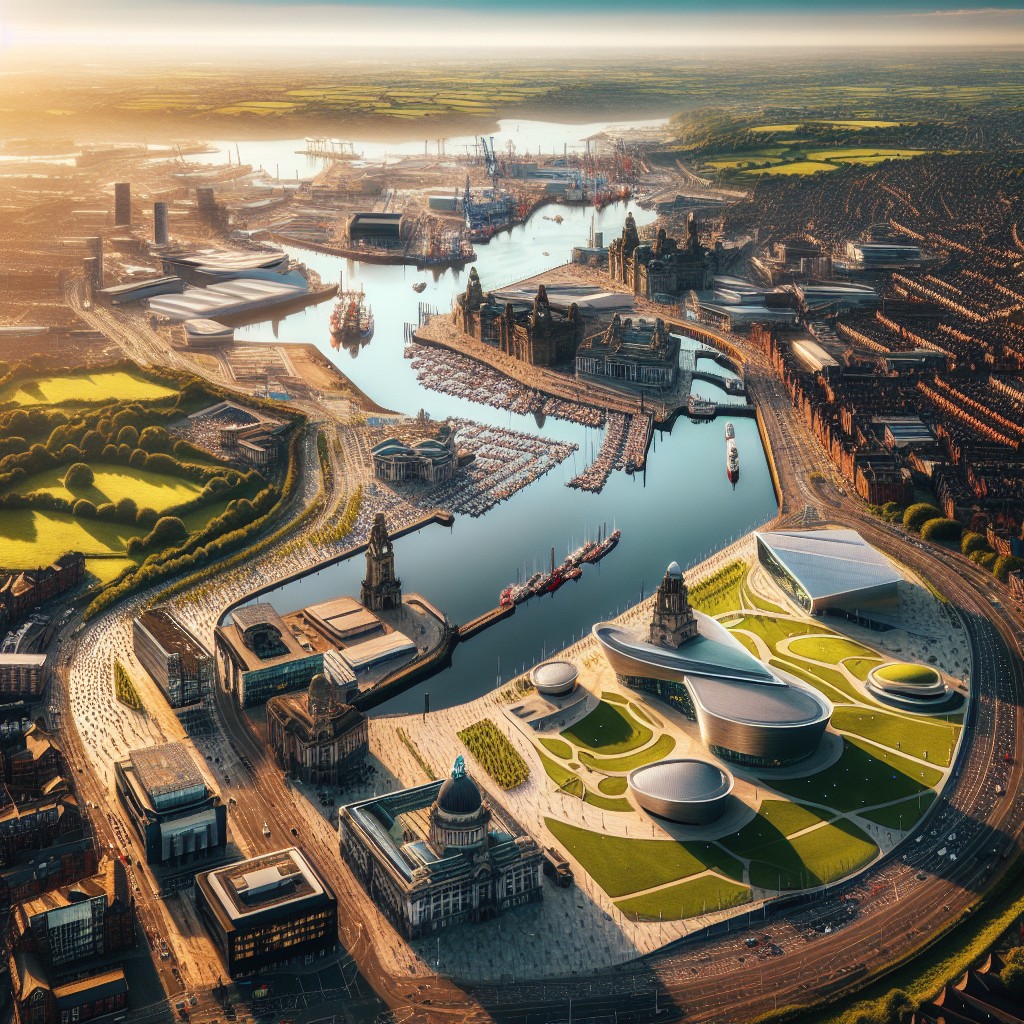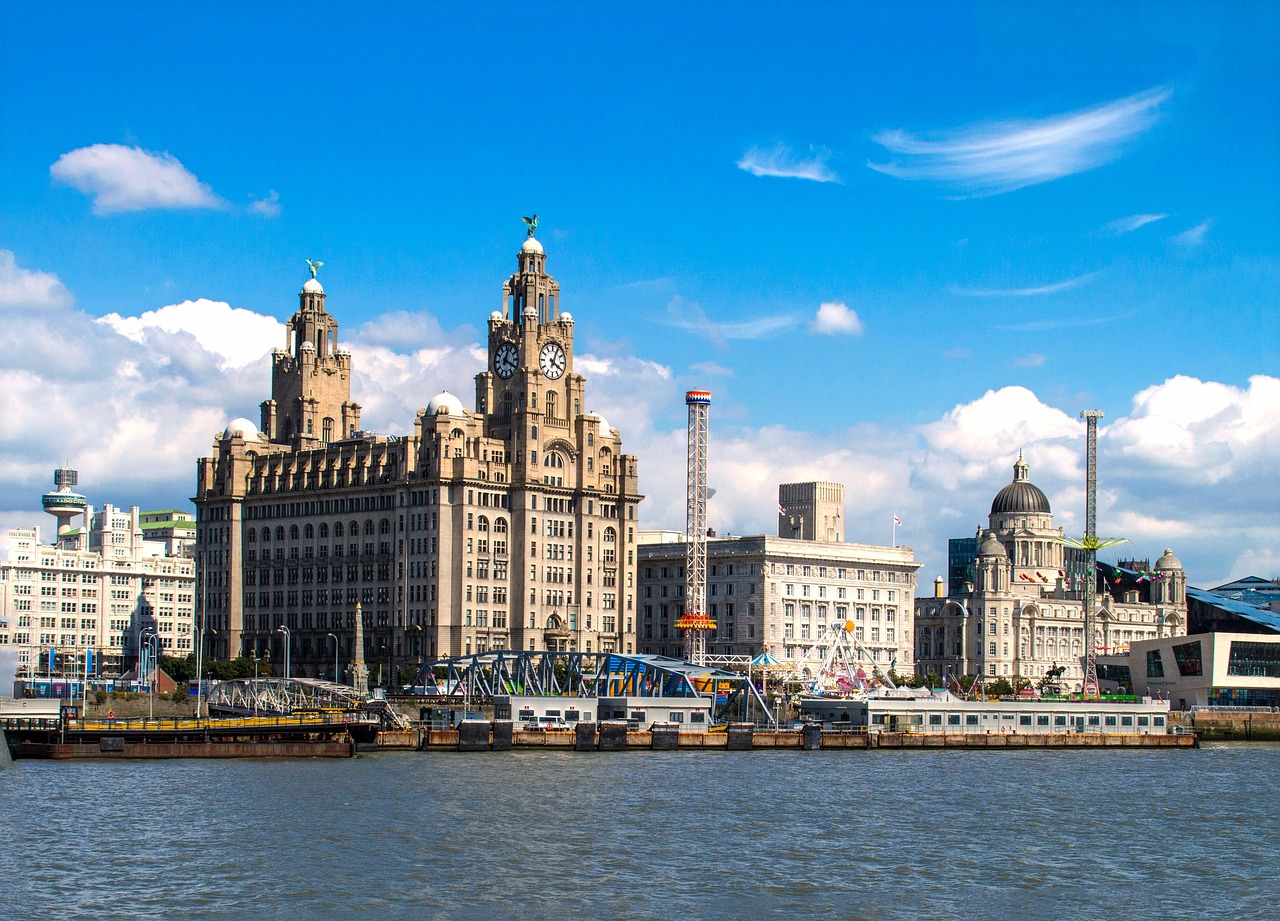
Merseyside is a county located in the North West of England. It is named after the River Mersey, which runs through the county and has played a significant role in its history and development. The county is home to several major cities and towns, including Liverpool, the largest city in Merseyside and one of the most famous cities in the UK. Other notable cities and towns in Merseyside include Birkenhead, St Helens, and Southport.
Summary
- Merseyside is a metropolitan county in the North West of England, with a population of over 1.4 million people.
- The region has a rich history, from its role in the Industrial Revolution to its vibrant cultural scene today.
- Merseyside has a temperate maritime climate, with mild winters and cool summers.
- The area is known for its contributions to music, literature, and film, with famous artists such as The Beatles and Willy Russell hailing from the region.
- Merseyside is home to several successful sports teams, including Liverpool and Everton football clubs, as well as a thriving tourism industry.
History of Merseyside: From Industrial Revolution to Today
Merseyside has a rich history that dates back centuries. It played a crucial role in the Industrial Revolution, with its ports and waterways becoming major hubs for trade and industry. Liverpool, in particular, became one of the world’s leading ports during this time, with goods from all over the world passing through its docks.
Over time, Merseyside has evolved and adapted to changing economic and social conditions. The decline of traditional industries such as shipping and manufacturing in the late 20th century led to significant challenges for the region. However, Merseyside has since undergone a process of regeneration and revitalization, with new industries such as digital technology and creative arts emerging.
Geography and Climate of Merseyside
Merseyside is located on the west coast of England, bordered by the Irish Sea to the west. It is a relatively small county, covering an area of approximately 250 square miles. The landscape of Merseyside is varied, with coastal areas, rolling hills, and urban centers.
The climate in Merseyside is generally mild, with cool summers and mild winters. The region experiences a moderate amount of rainfall throughout the year, which helps to keep the landscape green and lush. The proximity to the coast also means that Merseyside can be subject to strong winds at times.
Culture and Arts in Merseyside: Music, Literature, and Film
Merseyside has a vibrant cultural scene, with a rich heritage in music, literature, and film. Liverpool, in particular, has a strong musical tradition and is often referred to as the “Music Capital of the UK.” The city has produced numerous famous bands and musicians, including The Beatles, who are arguably the most famous band in the world.
In addition to its musical heritage, Merseyside has also been home to many renowned writers and poets. The city of Liverpool has a strong literary tradition, with authors such as Willy Russell and Beryl Bainbridge hailing from the area. The city has also been the setting for many films and TV shows, including the popular series “Peaky Blinders.”
Sports in Merseyside: Football, Rugby, and Boxing
Merseyside is known for its passionate sports culture, with football being particularly popular in the region. The county is home to two of the most successful football clubs in England – Liverpool FC and Everton FC. Both teams have a rich history and have won numerous domestic and international titles.
In addition to football, rugby is also popular in Merseyside. The region has several rugby league teams, including St Helens RLFC, which has enjoyed success in both domestic and international competitions. Boxing is another sport that has a strong following in Merseyside, with several notable boxers hailing from the area.
Economy of Merseyside: Industry, Trade, and Tourism
Merseyside has a diverse economy that encompasses various industries and sectors. Historically, the county was known for its shipping and manufacturing industries, which played a significant role in its growth and development. However, these industries have declined in recent decades, leading to a shift towards new sectors such as digital technology and creative arts.
Trade is also an important part of Merseyside’s economy, with the ports of Liverpool and Birkenhead continuing to handle significant amounts of cargo. The tourism industry is also a major contributor to the economy, with visitors drawn to the region’s cultural attractions, sporting events, and natural beauty.
Education in Merseyside: Schools, Colleges, and Universities
Merseyside has a strong education system, with a range of schools, colleges, and universities offering high-quality education. The county is home to several prestigious universities, including the University of Liverpool and Liverpool John Moores University. These institutions attract students from all over the world and contribute to the region’s reputation as a center for learning and research.
In addition to higher education, Merseyside also has a number of excellent schools and colleges that provide education at all levels. The county is committed to providing a high standard of education for its residents, with a focus on innovation and excellence.
Transport in Merseyside: Trains, Buses, and Ferries
Merseyside has a well-developed transportation infrastructure that makes it easy to travel within the county and beyond. The region is served by an extensive network of trains, buses, and ferries, providing convenient and reliable options for getting around.
Liverpool Lime Street is the main train station in Merseyside and offers connections to major cities across the UK. The county also has an extensive bus network, with regular services running throughout the day. For those looking to explore the region by water, there are regular ferry services that operate between Liverpool and Wirral.
Food and Drink in Merseyside: Local Cuisine and Pubs
Merseyside has a diverse food and drink scene, with a range of local cuisine and famous pubs to explore. The county is known for its hearty dishes, with favorites such as scouse (a meat stew) and hot pot (a meat and vegetable casserole) being popular choices.
In addition to traditional dishes, Merseyside also offers a wide range of international cuisines, reflecting the multicultural nature of the region. There are also numerous pubs and bars in Merseyside where visitors can enjoy a pint of locally brewed beer or sample a selection of gins from the area.
Places to Visit in Merseyside: Museums, Parks, and Landmarks
Merseyside is home to a wealth of tourist attractions, including museums, parks, and landmarks. The city of Liverpool is a major draw for visitors, with its iconic waterfront, historic buildings, and cultural institutions. The Albert Dock is a popular destination, offering a range of museums and galleries to explore.
Other notable attractions in Merseyside include Knowsley Safari Park, where visitors can get up close to a variety of animals, and Formby Beach, which offers stunning coastal views and the chance to spot red squirrels. The county also has several beautiful parks and gardens, providing peaceful green spaces in which to relax and unwind.
Merseyside is a county with a rich history, vibrant culture, and diverse economy. From its role in the Industrial Revolution to its contributions to music and the arts, Merseyside has much to offer visitors. Whether you’re interested in exploring the historic city of Liverpool, enjoying the natural beauty of the coast and countryside, or experiencing the region’s sports and entertainment scene, there is something for everyone in Merseyside. So why not plan a visit and discover all that this unique county has to offer?
FAQs
What is Merseyside?
Merseyside is a metropolitan county in the North West of England. It was created in 1974 and consists of five boroughs: Liverpool, Knowsley, Sefton, St Helens, and Wirral.
What is the population of Merseyside?
As of mid-2019, the estimated population of Merseyside was 1.4 million people.
What is the largest city in Merseyside?
Liverpool is the largest city in Merseyside, with a population of over 500,000 people.
What is the economy of Merseyside based on?
Merseyside has a diverse economy, with industries such as manufacturing, finance, tourism, and creative industries. The Port of Liverpool is also a major contributor to the economy.
What are some popular tourist attractions in Merseyside?
Merseyside is home to many popular tourist attractions, including the Beatles Story museum, Liverpool Cathedral, Anfield Stadium, and the Merseyside Maritime Museum.
What is the climate like in Merseyside?
Merseyside has a temperate maritime climate, with mild winters and cool summers. The average temperature in January is around 6°C, while the average temperature in July is around 17°C.
What is the transport system like in Merseyside?
Merseyside has a well-developed transport system, with buses, trains, and ferries connecting the different boroughs. Liverpool John Lennon Airport also provides international and domestic flights.



